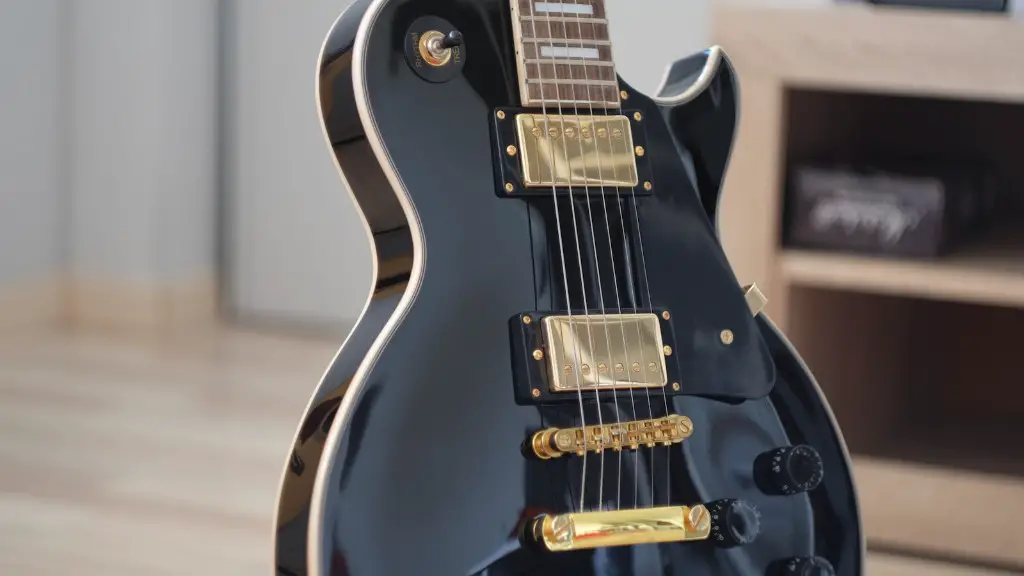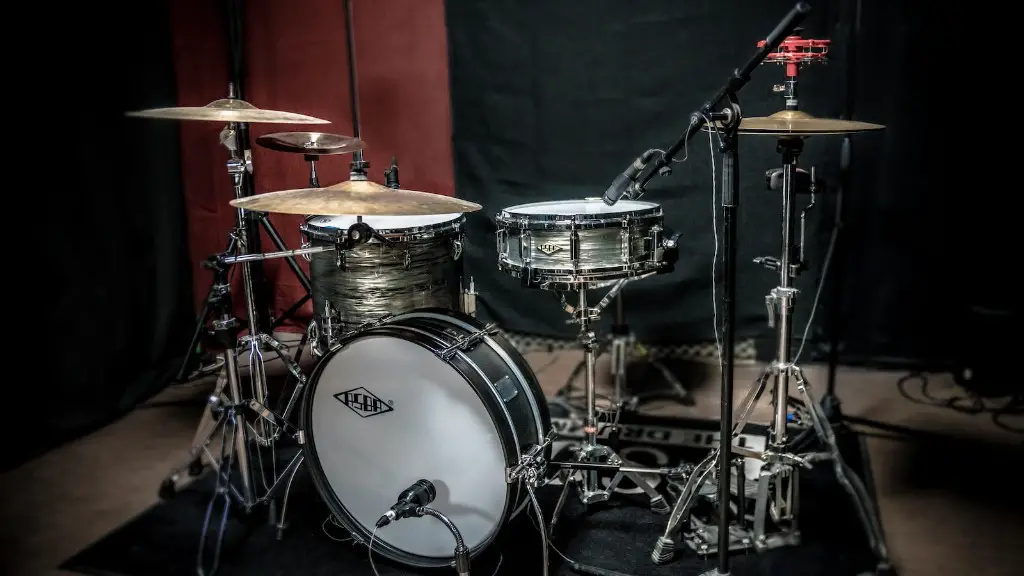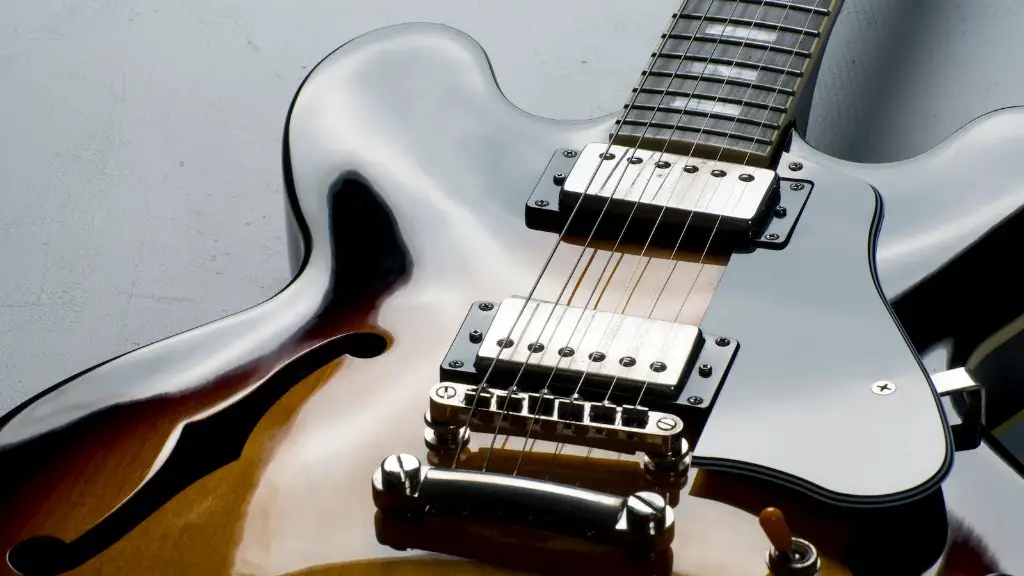Playing electric guitar can be a lot of fun, but it can also be frustrating when you hear buzzing coming from the instrument. Buzzing is caused by poor wiring, bad connections or improperly adjusted pickups and strings.
Fear not, because fixing this issue is fairly easy and straightforward. With some basic tools and supplies, you can quickly and easily reduce or stop that annoying buzzing sound coming from your electric guitar.
Read on to learn how to stop the buzzing on your electric guitar.
How to Stop Buzzing on Electric Guitar
Buzzing strings on an electric guitar can be a nuisance and may even lead to playing mistakes. The best way to stop buzzing is to check the guitar’s setup, strings and pickups.
Make sure the guitar is properly adjusted and the neck is in good condition. Loose truss rods or loose bridge saddles can cause buzzing, so they should be tightened if needed. Make sure the action of the strings is not too low, as this can increase buzzing.
Replace any old or worn-out strings with new ones as they can buzz easily due to their lack of tension. If you use heavy gauge strings, make sure they are stretched properly before playing. Check that all the pickups are adjusted correctly and that none of them are too close to a string as this can cause buzzing as well.
Finally, check if any other components such as straps and cables are causing interference or buzzing noises by moving them around a bit while playing. If you follow these steps, your electric guitar should be free from any unwanted buzzes and you’ll be able to play better!
Stopping Buzzing on Electric Guitar
Electric guitars can buzz for a variety of reasons, ranging from worn-out strings to faulty electronics. To stop the buzzing noise, start by checking the guitar’s pickup settings. Pickups are magnets located under the strings that detect vibration and affect the sound of your electric guitar. If they are too close to the strings, they may be detecting extra vibrations and causing buzzing. To fix this, adjust your pickups further away from the strings or use a screwdriver to make sure they’re all in line with each other.
If adjusting your pickups doesn’t work, check your amp settings or consider changing out damaged parts like knobs, jack plates or wires. You may also want to replace old strings, as they may be stretching and vibrating in ways that cause buzzing noises. If you don’t know how to make these adjustments yourself, consider seeking help from an experienced guitar technician who can get your guitar sounding great again.
How to Stop Buzzing on Electric Guitar
No matter how experienced you are as a guitarist, buzzing on your electric guitar can be a frustrating issue. Fortunately, there are several ways to fix this problem. The most common reason for buzzing is incorrect setup, so check that your strings are properly stretched and tuned and that your pickups are adjusted correctly. If the buzzing still persists, then check the effects pedals you may be using. Make sure all of the cables connecting them are securely plugged in and that the power sources are working properly. If you’re still having issues, try adjusting the volume or gain levels of each pedal.
In addition, make sure all of your pedals have adequate space between them so they don’t interfere with each other. Finally, keep an eye on the condition of your guitar cables; faulty cables can cause excessive buzzes and hums. If none of these solutions work, take your guitar to a professional technician for further help. With some basic troubleshooting and maintenance, you can get rid of any pesky buzzing coming from your electric guitar!
Inspect and Clean the Guitar
If you’re hearing buzzing in your electric guitar, it may be time to take a look at the inner workings. Buzzing can be caused by a variety of things, including a loose connection, an old or worn part, or even dirt and debris. Before replacing any parts or making any repairs, perform an inspection of the guitar to identify the source of the buzzing. First, check for any loose screws or parts that may have come undone. If all is secure and tight, it’s time to check for dirt and debris. Use a soft brush and vacuum cleaner to carefully remove buildup from hard-to-reach areas. Lastly, use a cloth dampened with rubbing alcohol to clean away any oil residue from the strings and fretboard.
Once you’ve completed your inspection and cleaning process, give your guitar a tune-up if necessary. This will ensure that all components are working correctly. With proper care and maintenance, your guitar should provide years of faithful service.
Adjusting the Truss Rod and Bridge Saddles
Buzzing on an electric guitar can be caused by a variety of factors, but adjusting the truss rod and bridge saddles is a common solution. The truss rod is a metal bar located inside the neck of the guitar that adjusts the neck’s curvature. Adjusting it can help to fix buzzing by ensuring that the strings are properly aligned with the fretboard. Bridge saddles are the pieces that hold each string in place at the bridge of the guitar. Adjusting these can help to reduce buzzing by making sure that each string is properly seated and has enough tension on it. If you’re having difficulty getting rid of your buzzing, it’s worth checking out both of these adjustments.
For best results, make sure to use a Quality tuner when adjusting your truss rod and bridge saddles so that you know exactly what you are doing. If done correctly, this should fix your buzzing problem and get your guitar sounding great again!
Stopping Buzzing on Electric Guitar
When you hear a buzzing sound from your electric guitar, it can be caused by several different factors. The most common causes are improper amplifier settings, bad guitar strings, or a faulty cable connection. To stop the buzzing sound, you need to first identify the source and then make the necessary adjustments.
Start by checking that your amplifier is set up properly. Make sure the gain is not too high and the volume is not too loud. You can also adjust the tone settings to reduce any harshness in the sound. Try playing with different EQ settings to find one that sounds best. If your amp still buzzes after making these adjustments, it could be due to a faulty cable connection or worn-out guitar strings.
Check all of your cables and ensure they are connected securely and free of any damage or corrosion. You should also inspect your guitar strings for signs of wear and tear such as fraying or rusting. If needed, replace them with new strings and tune them up according to your preferred setup.
By making these simple adjustments, you should be able to eliminate any buzzing noises coming from your electric guitar and enjoy playing without any interruptions.
Final Words
To prevent electric guitar buzzing, it’s important to understand the root cause of the issue. In most cases, this will involve tweaking your amp settings and changing your pickups or strings. You may also need to adjust the nut height or bridge saddles. If none of these methods work, then it’s best to enlist the help of an experienced technician. Overall, the key is to take a systematic approach in order to troubleshoot and identify the underlying issue.
With a bit of patience and some basic knowledge, you can fix electric guitar buzzing yourself and save time and money. Hopefully this guide has provided you with all the information you need to stop your guitar from buzzing for good.





